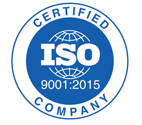So You Want to Balance Your Budget and Your Quality Consultants?
If you’re like most of your peers in Quality and Compliance, you are supplementing your internal team with outsourced consultants who can provide specific expertise and additional arms and legs to tackle projects. That means you are likely facing the same challenge: You have an uncompromising responsibility to produce safe, high-quality products and, at the same time, the executive team is closely watching every dollar spent and has little to no tolerance for cost overruns.
So what is the best way to get the highest quality work from your external resources while also managing costs? Developing an effective consultant compensation strategy, or perhaps revisiting an existing strategy, goes a long way toward answering this question. There are many things to consider with a compensation strategy, but two primary questions you need to ask yourself are:
- Do you know the pertinent compensation rules?
- Are you using the right compensation model?
Compensation Rules
Let’s first look at the rules. Your firm has designated each of its consultants as either Exempt or Non-Exempt, in accordance with the Fair Labor Standards Act. A major difference between Exempt and Non-Exempt employees is that Non-Exempt employees are entitled to overtime pay at a higher pay rate. For most states, these employees get 1.5x their regular rate of pay for all hours over 40 in a given work week, however there are different parameters in certain states. This is something you need to know about. If certain employees are being paid at these higher rates, that can certainly impact your negotiations with a firm. You may want to consider requiring all overtime to be pre-approved, or even a step further, imposing a restriction on overtime for such employees. Either way, educate yourself on the rules. That certainly doesn’t mean you need to become a guru of the Fair Labor Standards Act, but a working knowledge will certainly serve you well in your compensation discussions.
NEWS: The Department of Labor was set to implement changes to the overtime regulations within the Fair Labor Standards Act, effective December 1, 2016, which would have resulted in millions of more employees being classified as Non-Exempt, however in late November of 2016, a federal court blocked implementation of these new regulations pending further review. When and if these new rules will go into effect is uncertain.
Compensation Models
Now let’s focus on the models. One compensation model offered by some firms is a ‘fixed-fee’ model. Such an arrangement carries certain advantages including not having to track hours and expenses as well as potentially enhanced budget certainty, however many are turned off by the lack of flexibility with such a model. Projects and remediations are often complicated with many twists and turns along the way and therefore a fixed fee amount that once seemed appropriate may very quickly become stale and unreasonable. This can lead to a constant need for difficult renegotiations which can be tense, cause gridlock, and impact overall efficiency and timelines. Also, don’t forget - your consultants have their own profitability to think about, so when they are locked into a fixed price some may be tempted to cut corners to improve their bottom line.
Consequently, many companies prefer to compensate the firm on a ‘time and materials’ model in which you pay for every hour worked and for actual expenses incurred. This model is certainly more conducive to changing specifications and components of a particular project. However, this approach also has drawbacks. If the consultants get paid for every hour worked, then you need to ask yourself how truly motivated they are to get the job done as quickly and efficiently as possible. The quicker they finish, the quicker they are out of work!
The answer may be a hybrid model: Ask your firm about how they compensate their consultants. Do they pay their consultants bonuses, and are those bonuses tied directly to your performance feedback? If yes, clearly explain your priorities and come to agreement with your firm on both the criteria and the frequency for the performance evaluations (having speed/efficiency as one of the criteria would be perfect!). Now you have something! You’ve combined the flexibility of the time and materials model with a bonus element that provides for alignment of goals by incentivizing consultants to not only work effectively, but to work efficiently.
Collaborate With Your Hiring Firm
Firms can provide valuable consultants who are critical to the success of your department, but it’s up to you to ensure you are maximizing your benefit from these resources. To accomplish this, you need to educate yourself, talk openly and transparently with your provider, and understand your options so you can develop an effective and meaningful compensation strategy.

.png?width=754&height=377&name=consultant%20compensation%20strategies%20blog%20(1).png)




